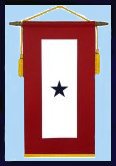Sunday, July 27, 2003
Iraqi killed as shooting erupts at anti-U.S. rally
Iraqi killed as shooting erupts at anti-U.S. rally
2003/7/28
KERBALA, Iraq, Agencies
An Iraqi man was killed and three wounded in the Shiite holy city of Kerbala on Sunday when protesters clashed with U.S. troops and Iraqi police, witnesses and hospital workers said.
Marines said two Kalashnikov rifle shots were fired during the protest and they returned fire. Reuters journalists saw troops fire in the air to try to disperse stone-throwers angry at the killing of another man by U.S. troops on Saturday.
Doctors at a hospital in the city, home to one of Shiite Islam's holiest shrines, said the man killed in Sunday's protest had been shot and showed the wound to a Reuters correspondent. One of the wounded, Shaer Abbas, said he had been hit with an electric cattle prod.
"During the protest, two rounds were fired from a building," a Marine officer told Reuters. "They were fired from an AK-47. We're investigating to make sure the firing has stopped."
Residents said unrest began on Saturday when locals accused U.S. troops of encroaching on the grounds of the revered Imam Hussein mosque. In resulting clashes, they said, an Iraqi died.
The Marine officer said the Iraqi killed on Saturday had been shot by troops because he was armed and posed a threat.
The death sparked Sunday's protest, with hundreds of men marching from the famed, gold-domed mosque waving banners and shouting anti-American slogans. As gunshots rang out, Marines dived for cover behind walls and many Iraqi police fled.
Soldiers arrested several protesters. At least one of the detained Iraqis was carrying a Kalashnikov AK-47 assault rifle. In angry confrontations, Marines threw several protesters to the ground and pointed their weapons at the crowd.
The funeral of the Iraqi killed on Sunday was due to take place at 5 p.m. (1300 GMT) on Sunday afternoon, and was expected to be another potential flashpoint in the tense city.
Violence directed against U.S. troops in Iraq has been concentrated in Sunni Muslim areas, the heartland of support for Saddam Hussein. But recent protests and attacks elsewhere are a sign of anger among the country's majority Shiites too.
The China Post
|
2003/7/28
KERBALA, Iraq, Agencies
An Iraqi man was killed and three wounded in the Shiite holy city of Kerbala on Sunday when protesters clashed with U.S. troops and Iraqi police, witnesses and hospital workers said.
Marines said two Kalashnikov rifle shots were fired during the protest and they returned fire. Reuters journalists saw troops fire in the air to try to disperse stone-throwers angry at the killing of another man by U.S. troops on Saturday.
Doctors at a hospital in the city, home to one of Shiite Islam's holiest shrines, said the man killed in Sunday's protest had been shot and showed the wound to a Reuters correspondent. One of the wounded, Shaer Abbas, said he had been hit with an electric cattle prod.
"During the protest, two rounds were fired from a building," a Marine officer told Reuters. "They were fired from an AK-47. We're investigating to make sure the firing has stopped."
Residents said unrest began on Saturday when locals accused U.S. troops of encroaching on the grounds of the revered Imam Hussein mosque. In resulting clashes, they said, an Iraqi died.
The Marine officer said the Iraqi killed on Saturday had been shot by troops because he was armed and posed a threat.
The death sparked Sunday's protest, with hundreds of men marching from the famed, gold-domed mosque waving banners and shouting anti-American slogans. As gunshots rang out, Marines dived for cover behind walls and many Iraqi police fled.
Soldiers arrested several protesters. At least one of the detained Iraqis was carrying a Kalashnikov AK-47 assault rifle. In angry confrontations, Marines threw several protesters to the ground and pointed their weapons at the crowd.
The funeral of the Iraqi killed on Sunday was due to take place at 5 p.m. (1300 GMT) on Sunday afternoon, and was expected to be another potential flashpoint in the tense city.
Violence directed against U.S. troops in Iraq has been concentrated in Sunni Muslim areas, the heartland of support for Saddam Hussein. But recent protests and attacks elsewhere are a sign of anger among the country's majority Shiites too.
The China Post









